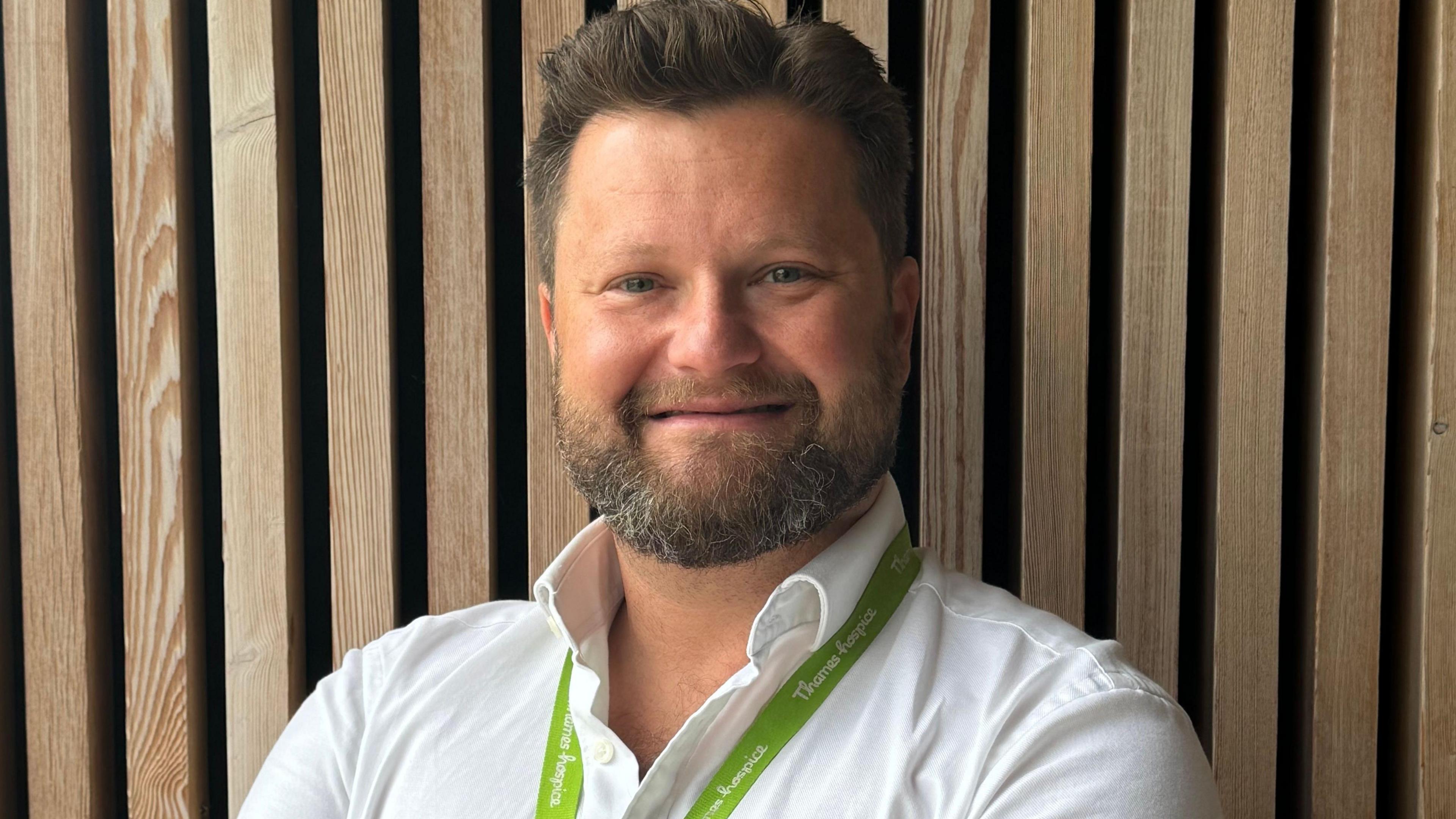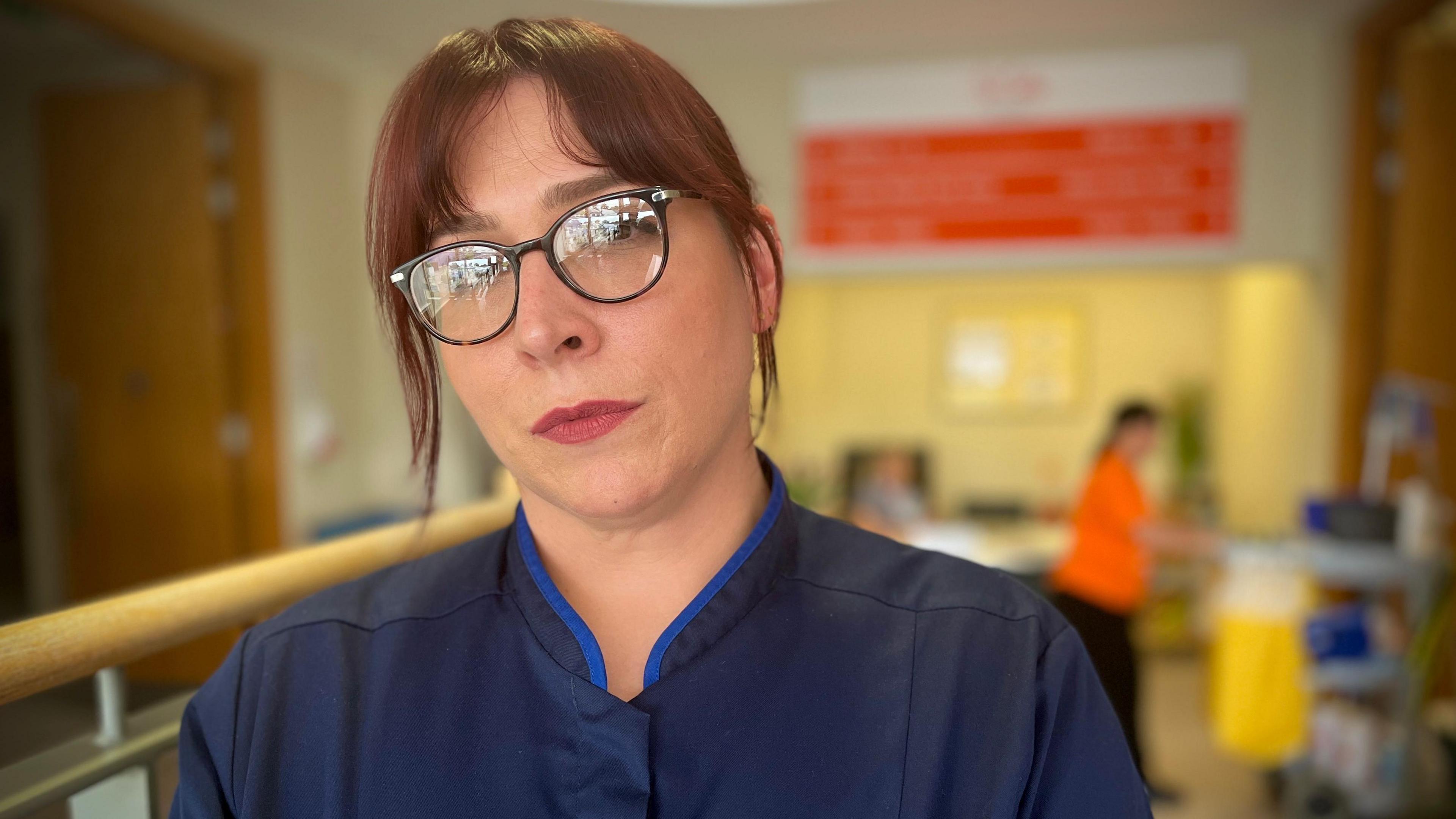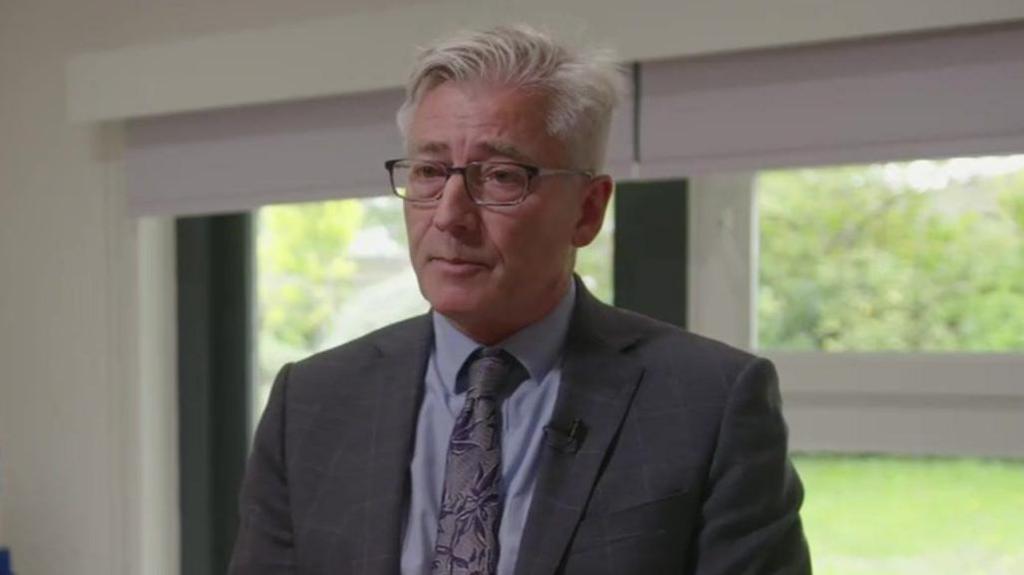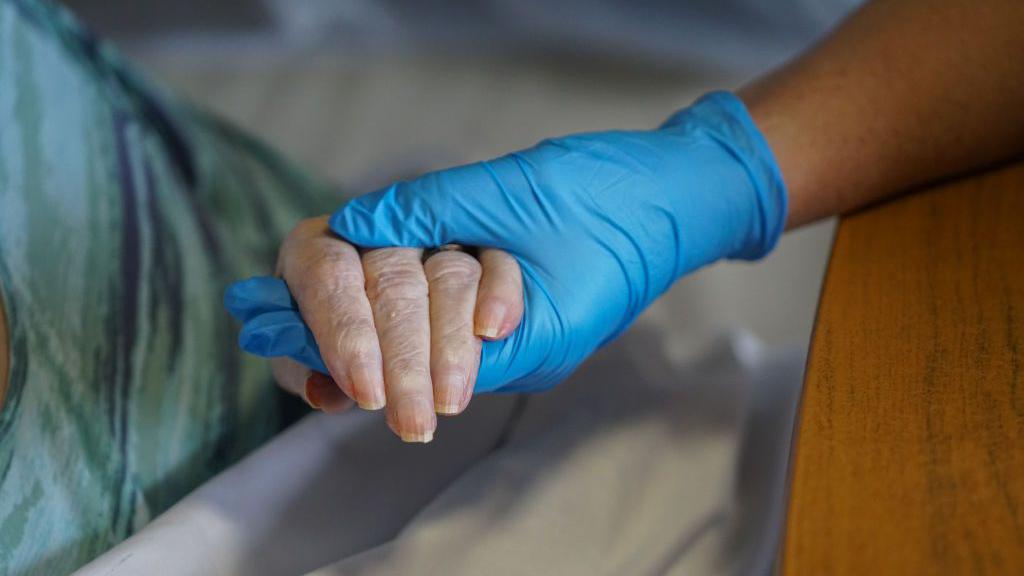Hospice boss warns of financial 'perfect storm'

Dr Nick Dando said the government needed to recognise the "specialist" role hospices provided
- Published
The chief executive of a hospice has warned the sector is facing a "perfect storm" of financial pressures.
Dr Nick Dando, acting CEO and medical director of Thames Hospice in Maidenhead, Berkshire, said a reduction in public donations and rising costs was creating a "very challenging" environment.
He said while there were no current plans to cut services or jobs, he was "very concerned" about the hospice's future.
A spokesperson for the Department of Health and Social Care (DHSC) said it would take time to fix the sector's "inherited" financial problems.
Hospice UK, the organisation representing the sector, warned of a funding crisis in August and Dr Dando said Thames Hospice had not "been immune to it".
"We've had to absorb significant... inflationary pressures," he said.
"Right now we're stable, but I'm concerned going into the autumn as we approach the budget."
He said he did not "anticipate" making staff cuts and had "no wish" to cut services, but said: "These cost pressures aren't going away."
'Ever-mounting pressures'
Louise Lucio, service director for Sue Ryder Duchess of Kent Hospital in Reading, said she wanted to see "sustainable and fair funding" from the government.
"Our costs have gone up by 10%," she said.
"What we're seeing is ever-mounting pressures... it's a challenging environment."
Dr Dando said for too long the hospice sector had been treated as an "add on" to the wider healthcare system - something he said had to change, because hospices had "evolved" since their inception.
"We're no longer a small part of local support for patients," he said.
"We are providers of complex specialist healthcare... the government needs to recognise that and make more funding available."
The DHSC spokesperson said they had "inherited huge challenges in the hospice sector".
"Whilst the majority of palliative and end-of-life care is provided by the NHS, we recognise the vital role voluntary organisations including hospices play in providing support to people at end of life and their families," they said.
"We are determined to shift more healthcare out of hospitals and into the community... hospices will have a big role to play in that shift."
Get in touch
Do you have a story BBC Berkshire should cover?
You can follow BBC Berkshire on Facebook, external, X (Twitter), external, or Instagram, external.
Related topics
- Published30 August 2024

- Published8 October 2024

- Published22 September 2024

- Published5 September 2024
